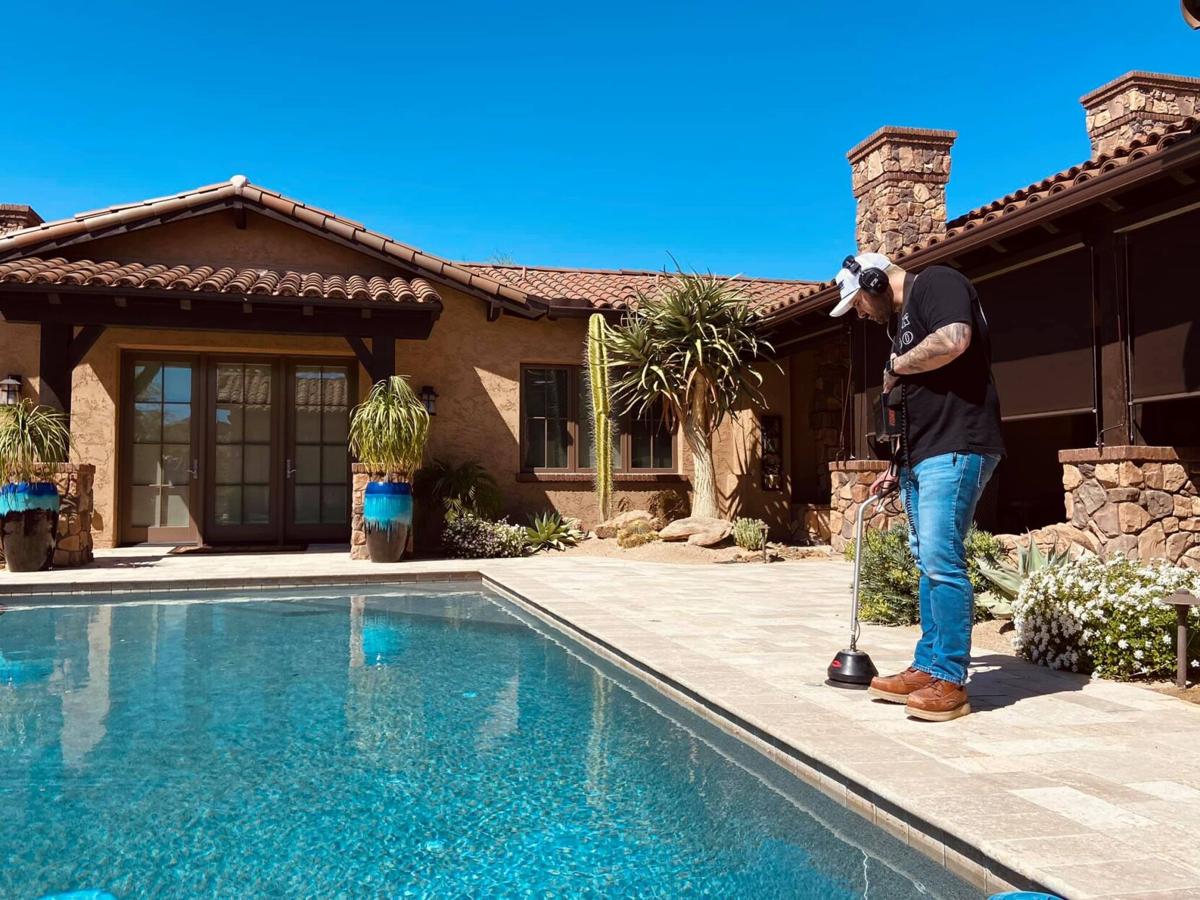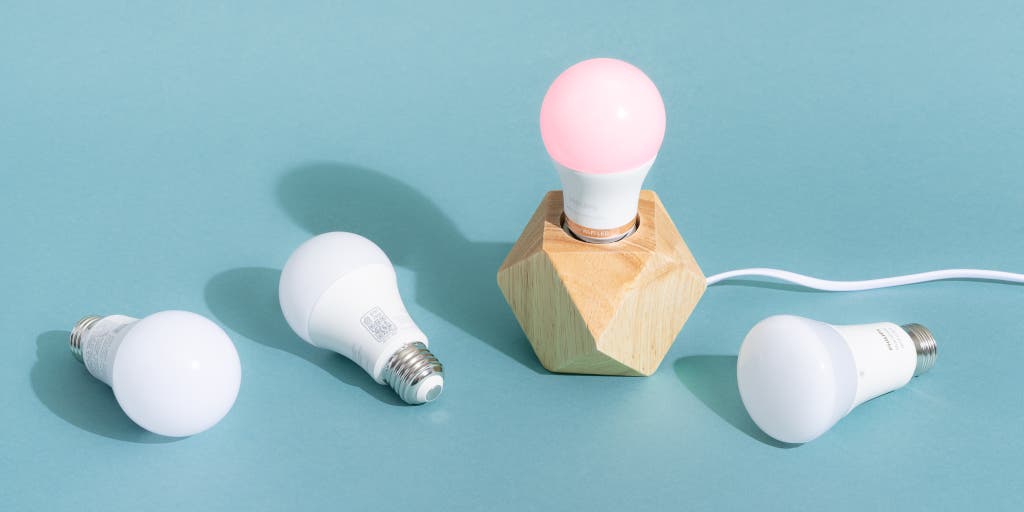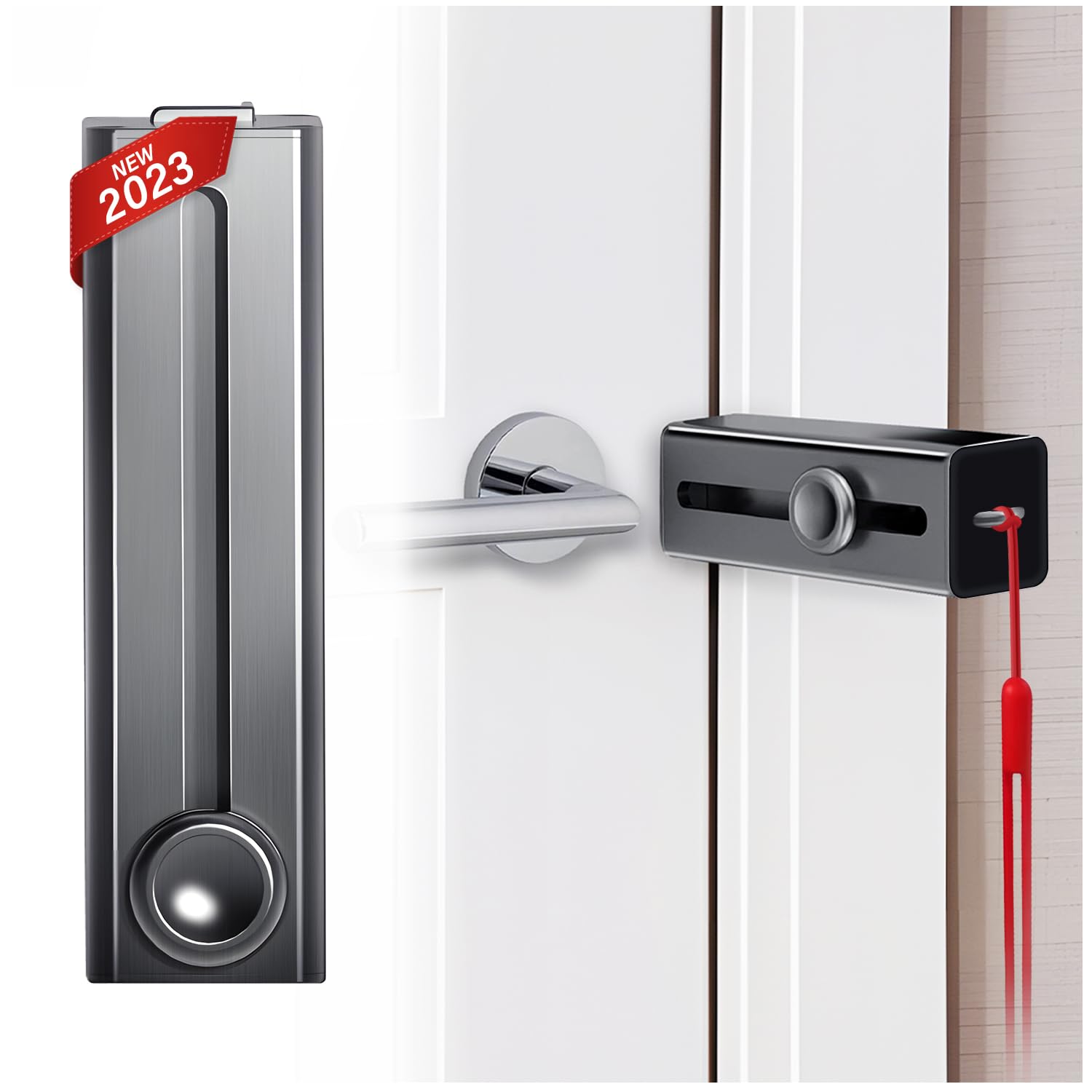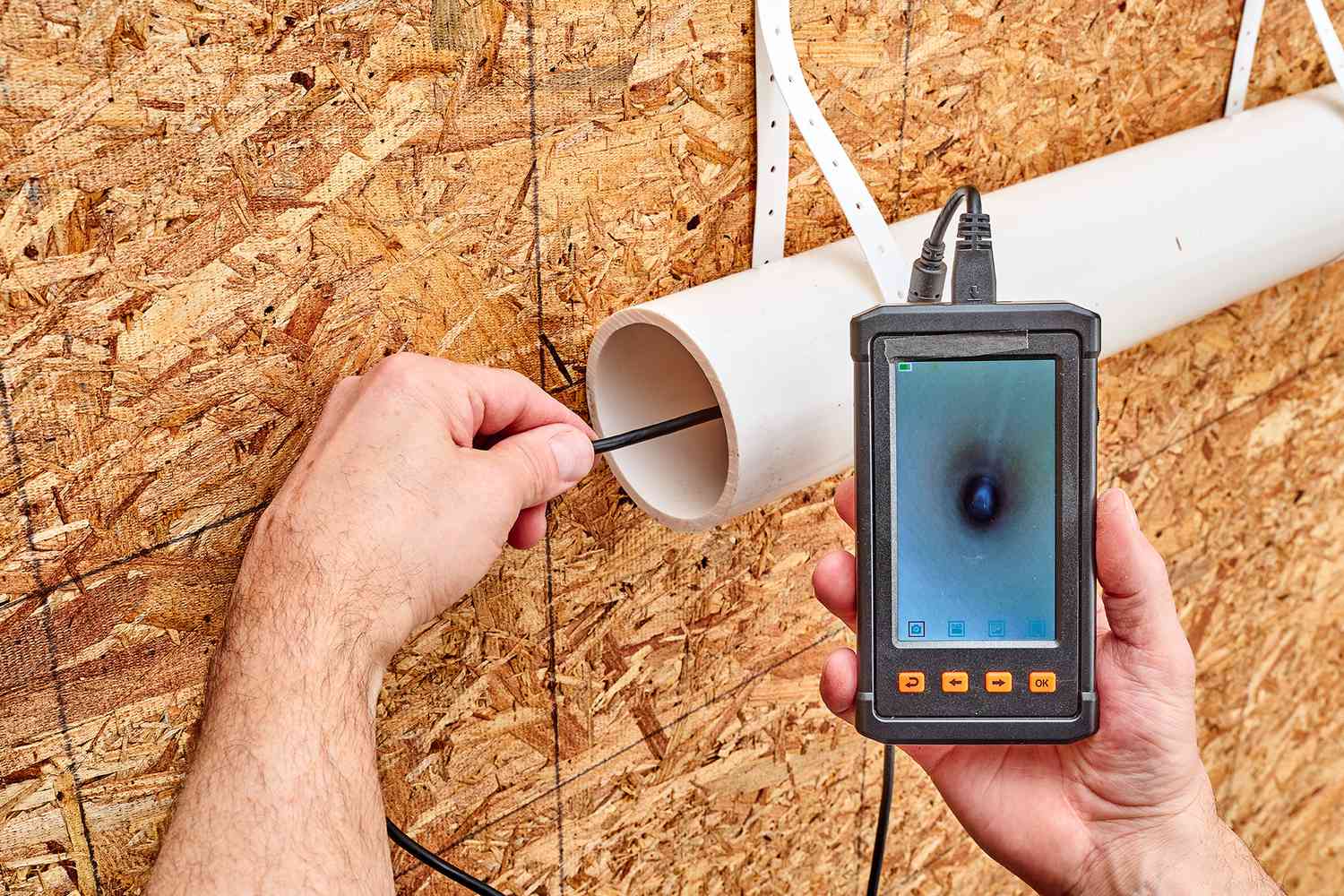Sonar-Based Water Leak Detectors: Cutting-Edge Technology for Leak Detection

Sonar-based water leak detectors use sound waves to identify and locate leaks in water pipes. These innovative devices provide an efficient and accurate solution for detecting and preventing water leaks, minimizing water damage and reducing water wastage.
By emitting sound waves into the pipe, the detectors can detect variations in the sound frequency, allowing users to pinpoint the exact location of the leak. With their ease of use, non-invasive nature, and high precision, sonar-based water leak detectors have become an indispensable tool for homeowners and professionals alike in maintaining the integrity of water systems.
How Sonar Technology Is Revolutionizing Leak Detection
Sonar technology is transforming leak detection in water systems. By utilizing sonar-based water leak detectors, professionals can quickly and accurately pinpoint the source of leaks, saving time and resources while helping to prevent further damage.
Sonar-Based Water Leak Detectors
Imagine being able to detect water leaks in your home or business quickly and accurately, without the need for extensive digging or costly repairs. Thanks to advancements in technology, this is now possible with sonar-based water leak detectors. Using sound waves to detect changes in water flow, these innovative devices are revolutionizing leak detection.
We will explore how sonar technology works, the advantages of using sonar-based water leak detectors, and real-life applications of these systems.
Sonar Technology Explained:
- Sonar technology utilizes sound waves to detect and locate objects underwater. By emitting sound pulses and measuring the time it takes for them to bounce back, sonar systems can create detailed images of underwater environments.
- In the case of water leak detection, sonar-based devices measure the sound waves generated by water flow within pipes. Any changes in the flow pattern, such as disruptions caused by leaks, can be detected and identified.
Advantages Of Using Sonar-Based Water Leak Detectors:
- Highly accurate: Sonar-based water leak detectors can pinpoint the exact location of a leak, allowing for swift and targeted repairs. This accuracy helps prevent unnecessary damage to surrounding structures and minimizes repair costs.
- Non-invasive: Unlike traditional leak detection methods that often require extensive digging and disruption, sonar-based detectors are non-invasive. They can assess water flow and identify leaks without the need for destructive excavation, preserving the integrity of the property.
- Time-saving: Sonar-based detectors can rapidly identify leaks, significantly reducing the time spent on leak detection. This efficiency is especially beneficial for large buildings or infrastructures, where quick detection and resolution are critical.
- Versatile: Sonar-based detectors can be used in various environments, including residential, commercial, and industrial settings. They are compatible with different pipe materials and sizes, making them versatile tools for leak detection.
Real-Life Applications Of Sonar-Based Leak Detection Systems:
- Residential properties: Sonar-based water leak detectors are highly suitable for residential homes. They can quickly identify hidden leaks within walls, floors, or ceilings, preventing extensive damage and costly repairs.
- Commercial buildings: Leak detection is crucial for commercial buildings, where water damage can have severe consequences on business operations. Sonar-based detectors can help identify leaks in large plumbing networks, ensuring prompt repairs and minimizing downtime.
- Municipal water systems: In urban areas, municipal water systems can experience leaks that lead to significant water loss and infrastructure damage. Sonar-based detectors enable efficient monitoring of these systems, facilitating early leak detection and reducing water waste.
- Industrial facilities: Industrial facilities often have complex piping networks, making leak detection challenging. Sonar-based detectors provide an effective solution, helping to maintain the integrity of these systems and prevent costly leaks.
Sonar-based water leak detectors are revolutionizing the way we detect and address water leaks. With their accuracy, non-invasiveness, and versatility, these devices offer a cost-effective and efficient solution for leak detection in various settings. By harnessing the power of sonar technology, we can proactively protect our properties and conserve water resources.
Key Features Of Sonar-Based Water Leak Detectors
Sonar-based water leak detectors offer a range of key features that make them essential tools for detecting and preventing water leakage. With their advanced technology and precision, these detectors can quickly locate leaks and help minimize damage, saving time and money in the long run.
Sonar-Based Water Leak Detectors
Advanced Sensor Capabilities
- Sonar-based water leak detectors utilize advanced sensor technology to accurately detect and locate leaks in residential and commercial settings.
- The sensors are specifically designed to measure water flow, pressure, and other key parameters, allowing for precise detection of leaks.
- With their advanced capabilities, these detectors can quickly identify even minor leaks, helping to prevent costly water damage and wastage.
Remote Monitoring And Data Analysis
- One of the key features of sonar-based water leak detectors is remote monitoring, which enables users to track and monitor their water consumption in real-time.
- Through a smartphone app or web portal, users can access detailed information about their water usage, receive alerts about potential leaks, and analyze historical data.
- This remote monitoring feature provides peace of mind, allowing users to stay informed and take immediate action in case of any unusual water consumption patterns.
Integration With Smart Home Systems
- Sonar-based water leak detectors can seamlessly integrate with smart home systems, enhancing the overall efficiency and functionality of the setup.
- By integrating with smart home devices such as smart speakers or hubs, users can receive instant voice alerts or notifications on their connected devices when a leak is detected.
- The integration also allows for automated responses, such as shutting off the water supply or activating other smart devices to mitigate the effects of a leak.
- This integration empowers users to take swift action and protect their homes from water damage, no matter where they are.
Sonar-based water leak detectors offer a range of key features that make them highly effective in detecting and addressing leaks. With advanced sensor capabilities, remote monitoring, and integration with smart home systems, these detectors provide reliable protection against water damage while offering convenience and peace of mind to homeowners and businesses.
Factors To Consider When Selecting A Sonar-Based Leak Detection System
Selecting a sonar-based water leak detection system requires careful consideration of various factors such as accuracy, sensitivity, ease of installation, and maintenance requirements. These factors play a crucial role in ensuring the effective detection and prevention of water leaks, helping to mitigate potential damages and save costs in the long run.
When it comes to choosing a sonar-based water leak detection system, you need to take several factors into consideration. The right system can help you identify and address leaks early on, preventing potential water damage and high repair costs. To ensure you make an informed decision, consider the following factors:
Compatibility With Existing Plumbing Infrastructure
- Consider whether the sonar-based leak detection system is compatible with your existing plumbing infrastructure.
- Look for a system that can seamlessly integrate with your current setup, without the need for extensive modifications or replacements.
- Ensure that the system is compatible with the pipes, fixtures, and valves in your plumbing system.
Ease Of Installation And Maintenance
- Opt for a leak detection system that is easy to install and configure, minimizing the need for professional assistance.
- Look for systems that offer straightforward installation instructions and user-friendly interfaces.
- Consider the level of maintenance required for the system, ensuring it fits within your capabilities and schedule.
Accuracy And Reliability Of Leak Detection
- Choose a sonar-based leak detection system that offers high accuracy in identifying leaks.
- Look for systems that can detect even minor leaks, giving you prompt notifications and preventing them from becoming major issues.
- Ensure that the system has a reliable track record and positive user reviews, indicating its effectiveness in detecting leaks.
Remember, selecting the right sonar-based water leak detection system is crucial for protecting your property. By considering factors such as compatibility, ease of installation and maintenance, as well as accuracy and reliability, you can make an informed decision that suits your needs.
Best Practices For Installing And Configuring Sonar-Based Water Leak Detectors
Discover the top tips for installing and configuring Sonar-Based Water Leak Detectors. Learn the best practices to effectively detect and prevent water leaks, ensuring the safety and efficiency of your water systems.
Sonar-Based Water Leak Detectors are an essential tool for safeguarding homes and businesses against water damage. Installing and configuring these innovative devices require careful consideration to ensure optimal performance. In this section, we will explore the best practices for installing and configuring Sonar-Based Water Leak Detectors, covering proper sensor placement, calibration and optimization tips, as well as troubleshooting common installation issues.
Proper Placement Of Sensors
To effectively detect water leaks, it is crucial to place the sensors in strategic locations. Follow these best practices for sensor placement:
- Position sensors near potential sources of water leaks such as sinks, toilets, dishwashers, and washing machines.
- Place sensors in basements, crawl spaces, and near water heaters, as these areas are prone to leaks.
- Install sensors in utility rooms and near pipes, valves, and connections.
- Consider placing sensors under refrigerators, ice makers, and other appliances that use water.
Proper sensor placement ensures comprehensive coverage, maximizing the detection capabilities of Sonar-Based Water Leak Detectors.
Calibration And Optimization Tips
To optimize the performance of Sonar-Based Water Leak Detectors, follow these calibration and optimization tips:
- During installation, calibrate the detectors according to the manufacturer’s instructions to ensure accurate readings.
- Regularly inspect and clean the sensors to remove any dust, debris, or obstructions that may affect their functionality.
- Adjust the sensitivity levels based on your specific needs and the environment where the detectors are installed.
- Periodically test the detectors to ensure they are functioning correctly and detecting leaks promptly.
- Keep the detectors connected to a power source at all times to provide uninterrupted protection.
By implementing these calibration and optimization tips, you can enhance the reliability and effectiveness of your Sonar-Based Water Leak Detectors.
Troubleshooting Common Installation Issues
While Sonar-Based Water Leak Detectors are designed to be user-friendly, you may encounter some installation issues. Here are common problems and their solutions:
- If the detectors are not detecting leaks, ensure that they are properly calibrated and positioned near potential sources of water leaks.
- If false alarms occur frequently, adjust the sensitivity levels to prevent interference from vibrations or other non-leak events.
- In the case of poor connectivity or communication issues, check the connection between the detectors and the control panel or monitoring system.
- If the detectors are not powering on, verify that they are correctly connected to a power source and that the power supply is functioning.
By troubleshooting these common installation issues, you can overcome any challenges and ensure the optimal performance of your Sonar-Based Water Leak Detectors.
Remember, proper sensor placement, calibration, and troubleshooting are essential for the effective installation and configuration of Sonar-Based Water Leak Detectors. Following these best practices will help provide early detection of water leaks, minimizing potential damage and protecting your property.
Early Detection And Prevention Of Water Damage
Detect water damage early and prevent costly repairs with Sonar-Based Water Leak Detectors. These advanced devices use sound waves to locate leaks, helping homeowners proactively address and resolve water damage issues before they become major problems.
Understanding The Potential Risks Of Undetected Water Leaks:
- Water leaks can lead to significant damage to your home or property if left undetected.
- Even a small leak can cause mold growth, structural damage, and costly repairs if not addressed promptly.
- Undetected leaks can also result in increased water bills and wasted resources.
- It is crucial to be aware of the potential risks associated with water leaks and take proactive measures to prevent them.
How Sonar-Based Detectors Help Prevent Costly Water Damage:
- Sonar-based water leak detectors use advanced technology to detect leaks before they become major issues.
- These detectors emit sound waves that bounce off the surfaces and objects in the area, allowing them to identify even the smallest water leaks.
- By detecting leaks early on, sonar-based detectors help prevent costly water damage and minimize the need for expensive repairs.
- They can alert homeowners or property managers to potential leaks, allowing them to take immediate action and mitigate the risk of further damage.
Tips For Proactive Leak Prevention And Maintenance:
- Regularly inspect your plumbing system for any signs of leaks or damage, such as drips, wet spots, or discolored areas.
- Install sonar-based water leak detectors in areas prone to leaks, such as basements, bathrooms, and kitchens.
- Maintain proper water pressure in your plumbing system to prevent leaks from excessive pressure.
- Ensure that all plumbing fixtures, including faucets and toilets, are in good working condition and replace any worn-out parts promptly.
- Insulate pipes in colder areas to prevent freezing and potential pipe bursts.
- Monitor your water bills for any sudden increases, as this could indicate an undetected leak.
- Implement a regular maintenance schedule for your plumbing system, including flushing out your water heater and clearing any clogs in drains.
- Educate household members or tenants on water-saving habits and how to detect and report leaks promptly.
By understanding the risks of water leaks, utilizing sonar-based detectors, and implementing proactive measures, you can prevent costly water damage and ensure the longevity of your property. Stay vigilant and take action to keep your space free from leaks and water-related issues.
Enhanced Home Safety And Efficiency
Enhance your home’s safety and efficiency with sonar-based water leak detectors. These innovative devices detect leaks with precision, helping you avoid costly damages and improve overall water management efficiency in your household.
Sonar-Based Water Leak Detectors:
Water leaks can be a nightmare for homeowners, leading to costly repairs and potential damage to your home. Traditional water leak detection methods are often reactive, only alerting you once the damage has already occurred. However, with the advent of sonar-based water leak detectors, enhanced home safety and efficiency are within reach.
These advanced devices utilize sound waves to detect leaks in real-time, providing homeowners with early warnings to prevent extensive damage. We will explore three key benefits of integrating sonar-based detectors into your home security system, as well as the water conservation, energy-saving benefits, and potential cost savings they offer.
Integration With Smart Home Security Systems:
- Seamless connectivity: Sonar-based water leak detectors can seamlessly integrate with your existing smart home security system, enhancing overall efficiency and convenience.
- Real-time alerts: Once a leak is detected, these detectors can immediately send alerts to your connected smart devices, including smartphones, tablets, or voice assistants, enabling you to take immediate action.
- Enhanced home safety: By integrating sonar-based detectors with your smart security system, you can have peace of mind, knowing that potential leaks will be detected and addressed promptly, minimizing damage and ensuring the safety of your home.
Water Conservation And Energy-Saving Benefits:
- Prevent unnecessary water waste: Sonar-based detectors allow you to identify and address water leaks promptly, preventing unnecessary water wastage and promoting water conservation efforts.
- Energy efficiency: By minimizing water leaks, you not only conserve water, but you also save on energy consumption. Water leaks often result in the overuse of water heaters and pumps, which can be avoided with the use of sonar-based detectors.
- Green living: Investing in sonar-based detectors aligns with eco-friendly practices, as it helps in reducing the carbon footprint associated with water waste.
Potential Cost Savings And Roi Of Using Sonar-Based Detectors:
- Avoid costly repairs: Early detection of water leaks can save you from expensive repairs caused by structural damage, mold remediation, or damaged possessions.
- Lower insurance premiums: Many insurance companies offer discounts or incentives for homes equipped with advanced leak detection systems, potentially helping you save on insurance premiums in the long run.
- Increased property value: Enhancing the safety and efficiency of your home with sonar-based water leak detectors can increase its overall value, making it more appealing to potential buyers in the future.
Leveraging the power of sonar-based detectors can significantly enhance the safety, efficiency, and long-term cost savings of your home. By integrating these devices with your smart home security system, you can enjoy real-time alerts, optimize water conservation efforts, and potentially lower insurance premiums.
Invest in sonar-based water leak detectors to protect your home, conserve resources, and improve your overall quality of living.

Credit: www.tampa-xway.com
Frequently Asked Questions For Sonar-Based Water Leak Detectors
Do Ultrasonic Leak Detectors Work?
Yes, ultrasonic leak detectors are effective in detecting leaks using sound waves.
Are Water Leak Detectors Any Good?
Water leak detectors are effective tools that can alert you to potential leaks in your home, helping you prevent costly damage.
What Are The Different Types Of Water Leak Detectors?
There are three main types of water leak detectors: spot detectors, whole-house detectors, and smart water detectors.
What Is The Best Leak Detection Equipment?
The best leak detection equipment is accurate, reliable, and easy to use.
Conclusion
Sonar-based water leak detectors offer a cutting-edge solution for detecting and preventing water leaks in both residential and commercial properties. These sophisticated devices use sound waves to accurately pinpoint leaks, allowing for prompt repairs and preventing costly damage. With their advanced technology and high level of accuracy, sonar-based detectors provide peace of mind for homeowners and business owners alike.
By eliminating the need for invasive methods and reducing the risk of water damage, these detectors are revolutionizing the way we identify and address leaks. As we continue to prioritize water conservation and efficient resource usage, investing in a sonar-based water leak detector is a wise choice.
Stay ahead of potential plumbing issues and protect your property with this advanced technology.





